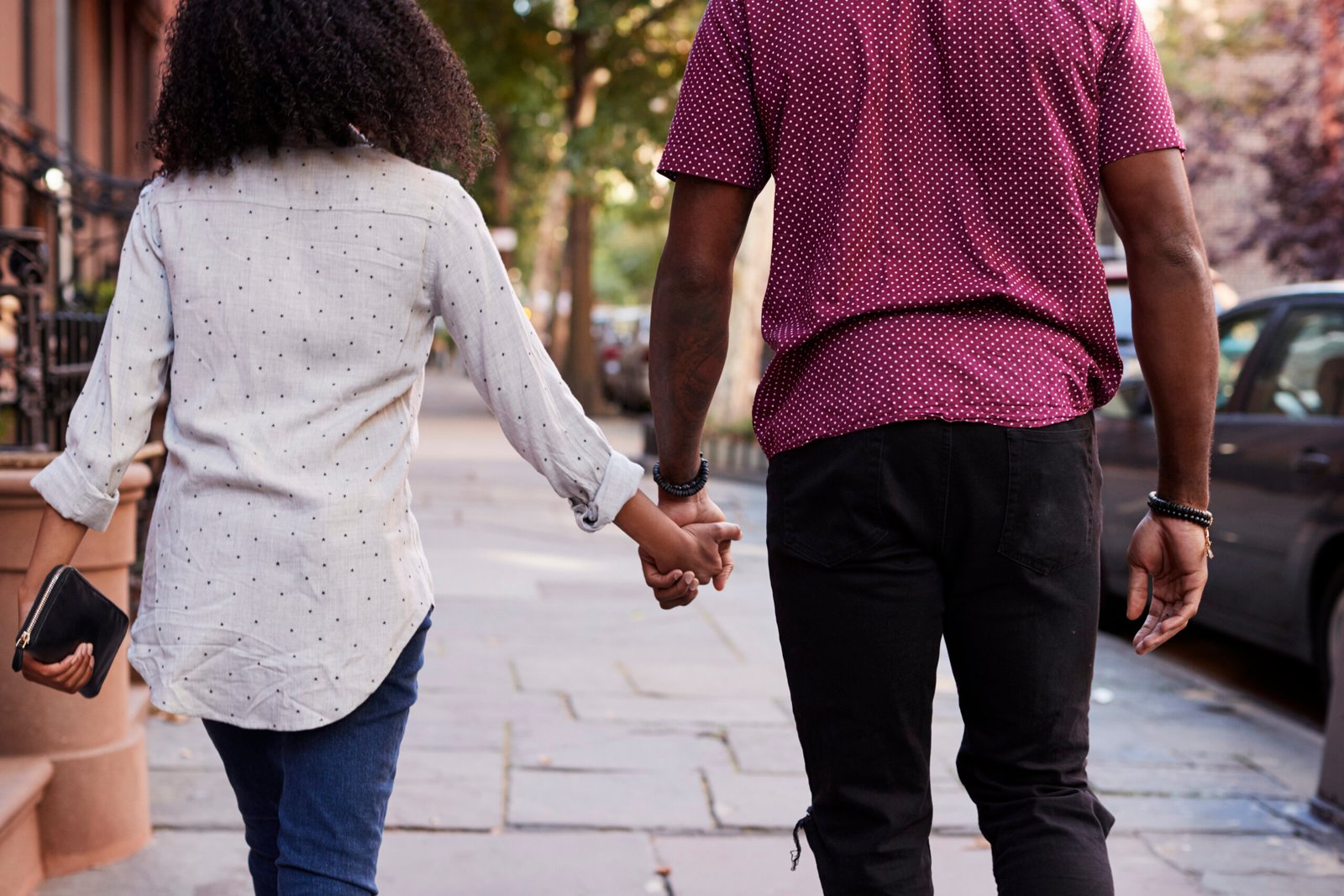Love is often perceived as an enigmatic emotion, a powerful force that sweeps individuals off their feet. However, beyond the romanticized notion lies a deeper, more profound understanding: love as a deliberate choice. This perspective asserts that love is not merely a spontaneous feeling but a conscious decision made by individuals. Recognizing love as a choice can be transformative, reshaping how we approach relationships and fostering personal growth.
Viewing love through this lens empowers individuals to take control of their emotional experiences. By choosing love, people can break free from the confines of victimhood, where they feel subject to the whims of their emotions or the actions of others. Instead, they can direct their responses and behaviors in a manner that aligns with their values and aspirations. This sense of agency is crucial for building healthier, more resilient relationships.
The notion of love as a choice emphasizes the importance of intentionality in our interactions. It encourages us to engage with others in ways that are nurturing and supportive. When love is seen as a decision rather than a mere feeling, it underscores the commitment to act with kindness, patience, and understanding, even during challenging times. This approach can lead to more meaningful and enduring connections.
Moreover, choosing love can be a catalyst for personal empowerment. It invites individuals to reflect on their own needs and boundaries, fostering self-awareness and self-respect. This self-empowerment can extend beyond romantic relationships, influencing all areas of life where love and connection play a role.
In essence, understanding love as a choice offers a pathway to transform victimhood into empowerment. It encourages a proactive stance in relationships, promoting growth, resilience, and a deeper sense of fulfillment. As we delve further into this concept, we will explore how this perspective can be practically applied to enhance our emotional well-being and interpersonal dynamics.
The Psychology of Victimhood
Victimhood can be understood through a psychological lens, revealing how individuals may develop a victim mentality as a result of past traumas, learned behaviors, or continuous negative experiences. This mentality often roots itself deeply within a person’s psyche, influencing their perception of the world and interactions with others.
Past traumas play a significant role in shaping a victim mentality. Individuals who have experienced abuse, neglect, or significant loss may find themselves trapped in a cycle of negative emotions and thoughts. These traumatic experiences can lead to feelings of helplessness and powerlessness, which are core components of a victim mindset. Over time, the repetition of these thoughts can solidify into a default way of thinking, making it challenging to break free from the cycle.
Learned behaviors also contribute to the development of a victim mentality. Children who grow up in environments where victimhood is modeled by caregivers or significant adults may internalize these behaviors. They learn to perceive themselves as victims and may adopt similar coping mechanisms, such as blaming others or feeling perpetually wronged. This learned behavior becomes a part of their identity, influencing their interactions and relationships.
Ongoing negative experiences can further reinforce a victim mentality. Persistent challenges, such as workplace conflicts, financial struggles, or chronic illness, can perpetuate feelings of being overwhelmed and unsupported. As these experiences accumulate, individuals may find it increasingly difficult to see themselves as anything other than victims, reinforcing the cycle of negative thinking and behavior.
The impacts of a victim mentality on personal and relational well-being are profound. On a personal level, individuals may struggle with low self-esteem, anxiety, and depression. Their worldview becomes colored by a sense of injustice and unfairness, limiting their ability to find joy and fulfillment. Relationally, a victim mentality can strain connections with others. Relationships may become characterized by blame, resentment, and a lack of accountability, leading to isolation and further emotional distress.
Understanding the psychology of victimhood is essential in transforming this mindset into one of empowerment. By recognizing the roots and impacts of a victim mentality, individuals can begin to take steps towards healing and reclaiming their sense of agency and control.
Empowerment Through Choice: The Role of Agency
Personal agency refers to an individual’s capacity to make choices and take actions that shape their life. This concept is fundamental in overcoming a victim mindset, which often stems from the belief that external circumstances dictate one’s fate. By recognizing and embracing personal agency, individuals can transition from feeling powerless to feeling empowered, thereby transforming their approach to life’s challenges.
The importance of personal agency lies in its ability to shift the narrative from “I can’t” to “I can.” When individuals acknowledge their power to make decisions, they begin to see opportunities for change and growth. This shift in perspective can be incredibly liberating, as it opens the door to proactive problem-solving and self-improvement. For instance, someone facing career dissatisfaction might feel trapped by their current job. However, by recognizing their agency, they can explore new skills, seek mentorship, or even pursue entirely new career paths.
Reclaiming one’s agency involves a conscious effort to identify and exercise the choices available in various aspects of life. In relationships, for example, understanding that one has the power to set boundaries, communicate effectively, and make decisions about their involvement can significantly alter the dynamic. Similarly, in the realm of health, individuals can take control by making informed choices about diet, exercise, and healthcare, rather than feeling at the mercy of their circumstances.
Another example can be found in the financial sphere. A person feeling overwhelmed by debt might initially perceive their situation as insurmountable. Yet, by recognizing their agency, they can take steps to create a budget, seek financial advice, and implement a plan to regain control over their finances. These actions, rooted in the acknowledgment of personal agency, can gradually lead to a sense of empowerment and a more positive outlook on life.
Ultimately, the recognition of personal agency is a transformative process. It encourages individuals to take ownership of their choices and actions, fostering a mindset of empowerment rather than victimhood. By embracing this concept, people can navigate life’s complexities with confidence and resilience, knowing that they have the power to influence their own paths.
Love as an Empowering Force
Love, when perceived as a conscious choice, serves as a profound force of empowerment. It transcends mere emotion, evolving into a deliberate act that fosters personal growth and resilience. Choosing to love oneself forms the foundation of this empowerment, as self-love nurtures confidence and self-worth. It enables individuals to set healthy boundaries, pursue their passions, and engage with the world from a place of inner strength.
Consider the story of Maria, a young professional who struggled with self-doubt and insecurity. By making a conscious decision to embrace self-love, she began to prioritize her well-being. Maria took up activities that she enjoyed, sought therapy to address her mental health, and surrounded herself with supportive friends. This choice transformed her life, empowering her to excel in her career and form meaningful relationships. Maria’s journey exemplifies how love, as a deliberate choice, can lead to a fulfilling and empowered existence.
Moreover, extending this choice to love others amplifies its transformative power. When individuals choose to love with intention, they cultivate empathy, compassion, and understanding. These qualities not only enhance personal relationships but also contribute to a more harmonious and connected community. For instance, John, a community leader, decided to approach his role with a mindset of love and service. By actively listening to and addressing the needs of his community, he fostered a sense of unity and cooperation, ultimately driving positive change.
In essence, love as a choice is a catalyst for empowerment. It encourages individuals to take control of their lives, make informed decisions, and build supportive networks. By embracing love in its various forms, people can transform victimhood into empowerment, leading to a richer, more fulfilling life.
Practical Steps to Choose Love
Choosing love in daily life is a conscious decision that requires dedication and practice. One effective strategy to cultivate this mindset is through mindfulness practices. Engaging in activities such as meditation, deep breathing, and mindful walking can help individuals stay present and centered, reducing the tendency to react impulsively to negative emotions. These practices create a mental space where one can choose love over fear or anger.
Incorporating positive affirmations into your daily routine can also reinforce the choice of love. By starting the day with affirmations like “I am worthy of love” or “I choose to see the good in others,” you can set a positive tone for the day ahead. Repeating these affirmations regularly helps to shift your mindset towards love and positivity, making it easier to choose love in challenging situations.
Setting healthy boundaries is another crucial aspect of choosing love. Boundaries protect your emotional well-being and ensure that interactions with others are respectful and supportive. Clear boundaries help prevent feelings of resentment and victimhood, allowing love to flourish in your relationships. Communicating your needs assertively and respectfully is key to maintaining these boundaries.
Moreover, practicing gratitude can significantly enhance your ability to choose love. Taking a few moments each day to reflect on the things you are grateful for helps to shift your focus from what is lacking to what is abundant in your life. This practice fosters a positive outlook and strengthens your capacity to choose love, even in difficult times.
Consistency and commitment are essential in this transformative process. Regularly engaging in these practices ensures that choosing love becomes a habit, rather than an occasional effort. Over time, this consistent practice will empower you to transform feelings of victimhood into a sense of empowerment, creating a life filled with love and positivity.
Overcoming Obstacles to Choosing Love
Choosing love over victimhood can be a challenging journey, often hindered by deeply ingrained obstacles such as fear, resentment, and past hurts. These emotional barriers can prevent individuals from embracing a mindset of love and empowerment. Understanding and overcoming these obstacles is crucial for fostering healthier relationships and a more fulfilling life.
Fear is one of the most potent obstacles to choosing love. Fear of vulnerability, rejection, or further emotional pain can create a protective barrier, making it difficult to open up to others. To combat this, it is essential to practice self-compassion and mindfulness. Engaging in mindfulness exercises, such as meditation and deep breathing, can help individuals stay present and reduce anxiety. Additionally, self-reflection can aid in understanding the roots of these fears, allowing individuals to confront and challenge them constructively.
Resentment, often stemming from unresolved conflicts or perceived injustices, can also obstruct the path to love. Holding onto resentment can breed negativity and prevent emotional healing. It is vital to address these feelings through open communication and forgiveness. By expressing emotions honestly and seeking resolution, individuals can release pent-up anger and move towards a more positive outlook. Forgiveness, both of oneself and others, is a powerful tool in dismantling resentment and fostering a loving mindset.
Past hurts, whether from relationships, family dynamics, or personal experiences, can linger and influence current interactions. These unresolved issues can create a cycle of negativity and distrust. Therapeutic techniques, such as cognitive-behavioral therapy (CBT) or counseling, can be invaluable in addressing and healing past traumas. Through professional guidance, individuals can reframe negative thoughts and develop healthier coping mechanisms.
Practical advice for maintaining a focus on love and empowerment includes setting boundaries, practicing gratitude, and engaging in self-care. Setting clear boundaries helps protect emotional well-being and fosters mutual respect in relationships. Regularly practicing gratitude can shift focus from negative experiences to positive aspects of life, enhancing overall happiness. Self-care activities, such as exercise, hobbies, and socializing, contribute to emotional resilience and a loving attitude.
In conclusion, by identifying and overcoming fear, resentment, and past hurts, individuals can transform victimhood into empowerment, cultivating a life centered on love and positive connections.
The Impact of Choosing Love on Relationships
Choosing love as a guiding principle can significantly transform personal relationships, leading to profound improvements in communication, trust, and intimacy. When individuals decide to approach interactions with a mindset that prioritizes love, they create an environment conducive to open communication. This shift encourages partners to express their thoughts and feelings more freely, fostering a deeper understanding between them. The act of choosing love means actively listening and responding with empathy, which helps to resolve conflicts amicably and strengthens the emotional bond.
Trust is another crucial element that benefits from the choice of love. When people commit to loving actions and intentions, they demonstrate reliability and honesty, essential components of trust. This consistency in behavior reassures partners and family members, reinforcing the belief that they can depend on each other. Trust, once established, serves as a foundation upon which deeper connections and mutual respect are built. Couples and families who choose love often find that their relationships become more resilient, as trust acts as a buffer against misunderstandings and external stresses.
Intimacy, both emotional and physical, also flourishes when love is chosen consciously. By prioritizing love, individuals become more attuned to their partners’ needs and desires, facilitating a more profound level of closeness. This intimacy is not limited to romantic relationships but extends to familial bonds as well. For example, parents who choose love in their interactions with their children create a nurturing and supportive atmosphere, promoting healthy development and emotional security.
Real-life examples abound of couples and families who have embraced love as a choice and reaped the benefits. Consider a couple who, despite facing significant challenges, decided to prioritize love and understanding. Their intentional efforts to communicate openly and trust each other ultimately led to a more harmonious and fulfilling relationship. Similarly, families that practice love in their daily interactions often experience stronger bonds and a greater sense of unity, proving that love, when chosen, can indeed transform relationships for the better.
Conclusion: The Ongoing Journey of Choosing Love
Throughout this blog post, we have explored the transformative power of love as an active choice rather than a passive experience. By examining the ways in which love can shift us from a state of victimhood to one of empowerment, we have underscored the importance of intentionality in our relationships and interactions. Choosing love requires consistent effort and a commitment to growth, both individually and collectively.
Embracing the mindset that love is a choice allows us to take control of our narratives, fostering resilience and strength. It pushes us to engage with others from a place of empathy, understanding, and compassion, rather than fear or resentment. This conscious decision to prioritize love can profoundly impact our well-being and the quality of our connections with others.
As we navigate the complexities of life, it is crucial to remember that choosing love is an ongoing journey. It demands continuous reflection, self-awareness, and a willingness to adapt. By committing to this path, we open ourselves to a more empowered and fulfilling existence, where love serves as the foundation for our actions and decisions.
Let us encourage each other to embrace this mindset and make the deliberate choice to love, even in the face of challenges. By doing so, we not only transform our own lives but also contribute to a more compassionate and understanding world. The journey of choosing love is one of the most rewarding endeavors we can undertake, and it begins with each of us making that conscious decision every day.










